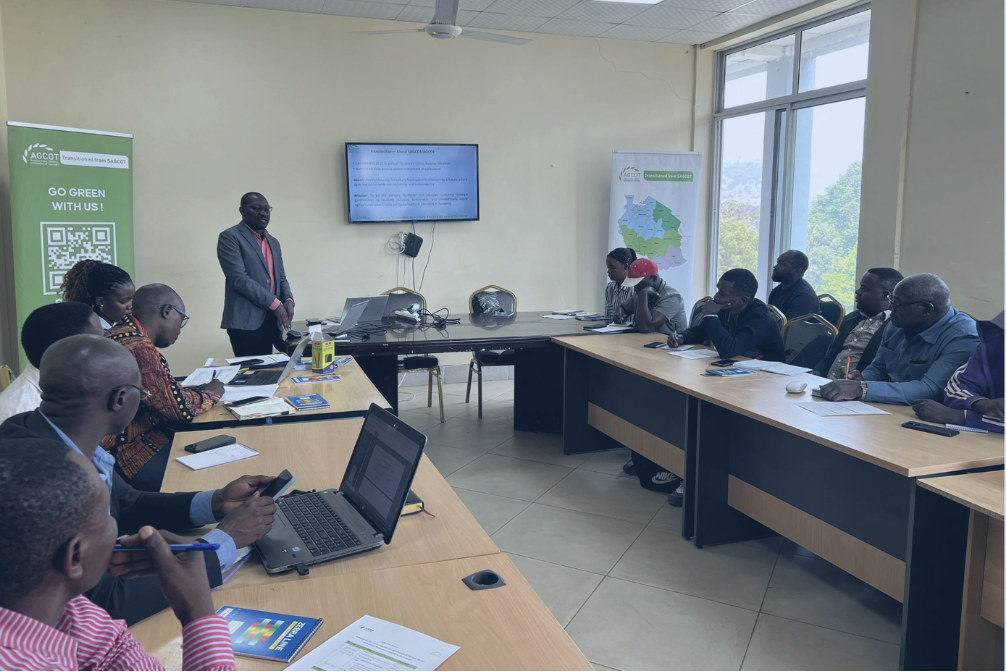MBEYA, Tanzania – In the fertile southern highlands of Tanzania, a strategic push is underway to transform the country from a regional breadbasket into a continental powerhouse. For years, the abundant maize and rice harvests from these green corridors have held the promise of prosperity. Yet, a formidable barrier has often stood between local producers and lucrative international markets: the intricate web of global food safety standards.
Now, a concerted effort is breaking down that barrier. On October 7, key players in Tanzania’s grain industry gathered in the city of Mbeya for a pivotal workshop designed to arm them with the knowledge and tools needed to compete on the world stage. Organised by the Agricultural Growth Corridors of Tanzania (AGCOT), the event marks a critical step in a nationwide ambition to not just grow more, but to grow better.
A Multi-Pronged Approach to Quality
The workshop brought together the very engine of the agricultural sector: the “anchor firms” – the aggregators, processors, and traders who connect countless smallholder farmers to the market. Representing the vital agricultural zones of Iringa, Mbeya, Morogoro, Ruvuma, and Songwe, these businesses are at the forefront of the push for quality.
The event, held at the Mbeya Regional Commissioner’s Office, was more than a simple training session; it was the formation of a united front. Experts from critical government and private sector bodies provided a 360-degree view of the export ecosystem:
- Policy & Trade: The Ministry of Trade (MIT) demystified the policy landscape governing cross-border commerce.
- Standards & Compliance: The Tanzania Bureau of Standards (TBS) laid out the technical requirements and food safety protocols that are non-negotiable in foreign markets.
- Nutrition & Value-Addition: The Tanzania Food and Nutrition Centre (TFNC) highlighted the growing demand for fortified foods, presenting an opportunity for producers to add value and meet nutritional goals.
- Business Enablement: The Tanzania Chamber of Commerce, Industry and Agriculture (TCCIA) detailed its support systems for small and medium-sized enterprises (SMEs) aiming to scale up.
“This initiative is about unlocking the full potential of our agricultural produce,” said Dr. Samora Stanley Mshang’a, Mbeya Regional Veterinary Officer, who opened the workshop. He stressed that meeting international standards is the gateway to greater economic opportunity for the entire value chain.
Fueling Growth from the Ground Up
Recognizing that ambition requires capital, a coalition of financial institutions, including Equity Bank and the Private Agricultural Sector Support (PASS) Trust, was on hand to advise businesses on financing their expansion and upgrades.
This comprehensive initiative is a core component of the wider Youth Empowerment and Food Systems in Africa (YEFFA) Project, an ambitious program funded by the Mastercard Foundation through the Alliance for a Green Revolution in Africa (AGRA). The project’s vision is twofold: to strengthen the entire agri-food ecosystem and, in doing so, create sustainable and dignified employment for Tanzania’s youth. By empowering local firms to meet higher standards, the project creates a ripple effect, boosting demand, increasing farmer incomes, and making the sector more attractive to the next generation.
The Road Ahead
As the day concluded, the message was one of shared responsibility and immense opportunity. Lazaro Joseph Melchizedeck, the Assistant Regional Administrative Secretary for Songwe, urged participants to forge lasting partnerships. “The standards and training provided will not only help farmers and processors gain market access,” he remarked, “but also advance the national agenda of adding value to our agricultural produce right here at home.”
Participants left with a clear roadmap for elevating their operations. The workshop was not merely an event, but a catalyst. The drive to enhance food safety compliance is set to bolster Tanzania’s agricultural competitiveness, drive economic growth, and solidify its role as a key, reliable supplier of quality food for a growing continent.
